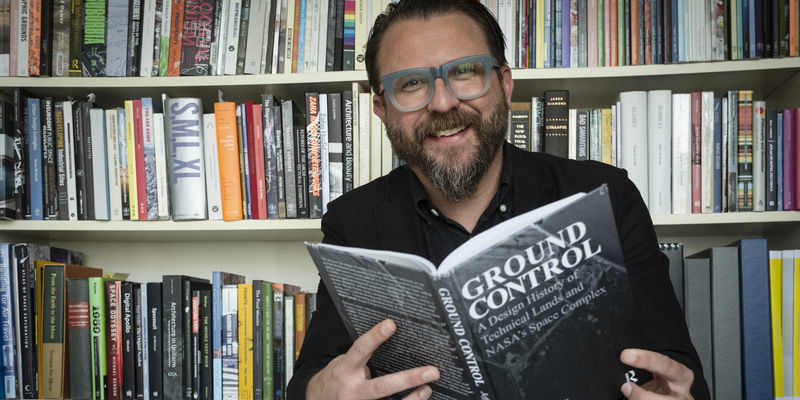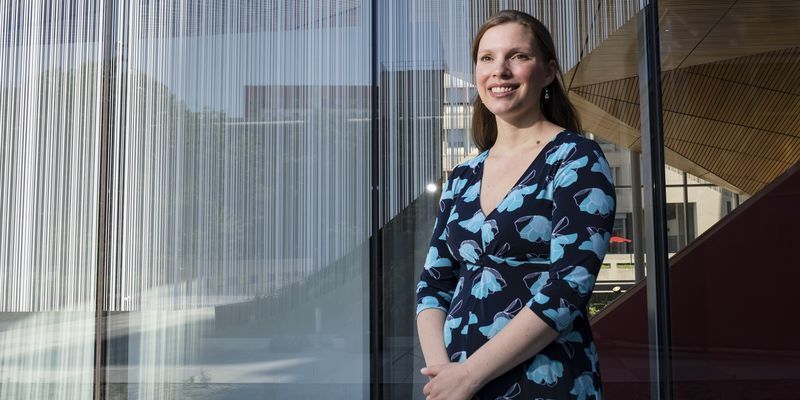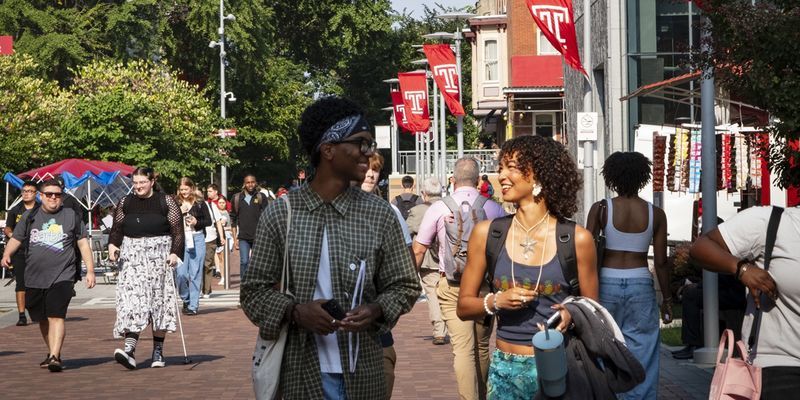Trailblazing new Temple research center will make batteries safer
The Center for Battery Safety will make battery-powered devices safer through the research it conducts for stakeholder companies and agencies.

On Wednesday, Sept. 25, Temple University’s College of Engineering will celebrate the launch of its new Center for Battery Safety (CBS) with a kickoff meeting for companies and institutions interested in becoming stakeholders. Several notable companies and institutions have already registered to attend, including Ford, Stellantis, Tesla, Amazon, Apple and the National Highway Safety Transportation Administration.
The new center will lead research around the safety of batteries when they crash and mechanical deformations leading to internal short circuits. This work will not only improve the products made by its stakeholders but enhance safety for people everywhere relying on lithium-ion battery-powered vehicles and devices.
Leading the center as its director is Elham Sahraei, associate professor of mechanical engineering and director of Temple’s Electric Vehicle Safety Lab. Sahraei’s research is focused on the safety of lithium-ion batteries under extreme conditions. She joined Temple after serving as co-director of the MIT Battery Consortium and research scientist at the Impact and Crashworthiness Lab of Massachusetts Institute of Technology.
Sahraei says the CBS is a necessary and important addition to Temple’s research efforts, since battery fires are a main concern for any battery-powered product that is subject to deformation, either during manufacturing or as the result of an accident.
“Everyone has probably heard about battery fires in different contexts—for cell phones, electric vehicles that got into an accident, even Boeing airplane battery fires,” said Sahraei. “The main goal of our new center is to help companies understand, first of all, what causes a battery crash, and to then help them understand what they can do to protect their batteries from getting into short circuit.”
In addition to a $240,000 grant from Temple’s Office of the Provost, CBS will receive funding from its member stakeholders, potentially including some of those attending the kickoff event. The center will collect membership fees from these companies and organizations in return for conducting research that will help them optimize the safety and performance of batteries in their products.
Sahraei believes the center’s work will be of interest to electric vehicle companies, battery companies, software companies and government agencies like the Department of Energy, Department of Defense and the Department of Transportation. The research will be shared with member stakeholders and published in peer-reviewed scholarly journals.
Sahraei says her Electric Vehicle Safety Lab (EVSL) laid the groundwork for the new Center for Battery Safety. Since 2018, Sahraei has led graduate and undergraduate students working in the EVSL in conducting research focused on safety testing and modeling of lithium-ion batteries used in electric vehicles.
The new center will be housed in the EVSL, but Sahraei and her students will also conduct research in collaboration with other labs and faculty around Temple. These include the College of Engineering’s Dynamical Systems Laboratory led by Assistant Professor of Mechanical Engineering Damoon Soudbakhsh, Professor of Chemistry Stephanie Wunder’s lab in the College of Science and Technology (CST), Research Associate Professor Dmitriy Dikin from CST’s Electron Microscopy Lab and Chair of Mechanical Engineering Kurosh Darvish.
While battery research centers are common today, Sahraei says most labs focus on other issues like optimizing a battery’s charge or recycling batteries at the end of their life.
“I am not aware of anywhere else that has a center mainly focused on battery crash safety,” she added.
Because of the unique nature of the lab and its research, Sahraei says student workers will gain valuable preparation for in-demand jobs. Many students who’ve worked with Sahraei have already secured internships and jobs at companies like Tesla, Lockheed Martin and Apple.
“Our students are learning techniques that are really in demand,” she said. “My grad students usually don’t have to search for jobs. Companies start reaching out to them one or two years before graduation, and they get job offers way before they’re ready to enter the job market.
“So this center will benefit our students, as well as the whole world, by optimizing safety in this field and making the future of transportation safer and more efficient.”


